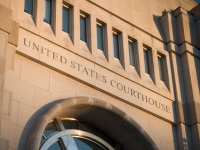In a series of recent verdicts since 2011, Higher Labor Courts in Germany have increased the employer’s scope to monitor and control employees’ use of provided company IT and to sanction breaches of contract and statutory law discovered hereby. While the protection of the employee’s privacy and right to self-determination regarding his personal data had been the focus of the jurisdiction in the past, labor law jurisdiction has now strengthened the employer’s rights of ownership (as to their company IT) and of profession. This enables employers to track unlawful action committed by their employees on electronic devices in a more efficient way and will support employers particularly in the maintenance of their business operations, in litigation procedures against employees as well as in internal company (compliance) investigations.
1. Verdict by the Higher Labor Court Berlin-Brandenburg from February 16, 2011 (4 Sa 2132/10)
Until 2011, the employer’s possibility to access and control the computer of an employee, which was furnished by the employer in order for the employee to fulfill his contractual obligations, with regard to possible breaches of law depended on whether the employer had allowed the use of such computer for business purposes only or also for private use. According to lower German labor courts and German scholars, the grant of private use of company IT qualified employers as “providers of telecommunication services” in the sense of the German Telemedia Act (Telemediengesetz; “TMG”) and German Telecommunications Act (Telekommunikationsgesetz; “TKG”) to the effect that the employers were deemed to be subject to the requirements of the “secrecy of telecommunications” (Fernmeldegeheimnis). Such secrecy of telecommunication bans the respective service provider from reviewing “the contents and the detailed circumstances” of any communication that takes place via its communication channels. Lower German labor courts and German scholars argued that, due to the grant of private use of email and internet, employers could not be treated in a different way than professional providers of telecommunication services, such as AOL or T-Mobile, as the respective communication would no longer only relate to internal affairs of the company. Instead, there would be a risk that the employer takes note of private communication as well even if he intends to check business communication only. READ MORE →







